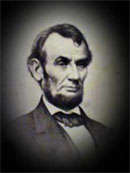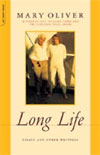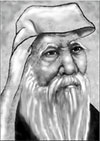 This week, we commemorate the anniversary of Abraham Lincoln’s birth. I found a revealing passage, quoting several biographers who’ve tried to make sense of Lincoln’s religious belief system.
This week, we commemorate the anniversary of Abraham Lincoln’s birth. I found a revealing passage, quoting several biographers who’ve tried to make sense of Lincoln’s religious belief system.
…Lincoln believed some form of providence was at work in the universe, but was unable to believe in a personal God or in Jesus as his saviour. That amounted to Unitarianism, but Lincoln had no interest in that liberal denomination.
…Lincoln combined two classic strains in American culture. He personifies the hope that in a market-oriented democracy the poorest citizen can prosper through ambition. But in addition, Americans “want our mobility linked to a lofty set of principles, not just profit,” says Guelzo, and Lincoln also represents firm moral commitments.
For instance, on principle he helped conquer Protestant Whig and Republican elements that despised Catholic immigrants. And, after some struggle, he came to see slavery not as a pragmatic problem, but a moral blight.
Early in the Civil War, with the North’s effort sputtering, Lincoln came to believe that defeat was inevitable if the war was being waged only to save the Union, not for a higher moral cause.
At a crucial cabinet meeting after the Battle of Antietam in September 1862, Lincoln astounded his colleagues by saying he had made a vow to himself and – he added after a pause -“to my Maker”: If God allowed the North to repel Lee’s Confederate invasion, it would then be Lincoln’s duty to abolish slavery.
This prewar skeptic was now Guelzo writes, “offering as his reason for the most radical gesture in American history a private vow fulfilled in blood and smoke by the hand of God.”
When the Emancipation Proclamation was issued the following January, Lincoln added this conclusion, at the prompting of Treasury Secretary Salmon Chase: “Upon this act, sincerely believed to be an act of justice, warranted by the Constitution upon military necessity, I invoke the considerate judgment of mankind and the gracious favour of Almighty God?”
When Mary Lincoln, the daughter of Kentucky slave-owners, questioned the president about abolition, he looked heavenward, son Robert recalled.
“I am under orders,” Lincoln told his wife, “I cannot do otherwise.”
Here’s another excellent description of Lincoln’s religious world view from a back issue of “Christianity Today.”

